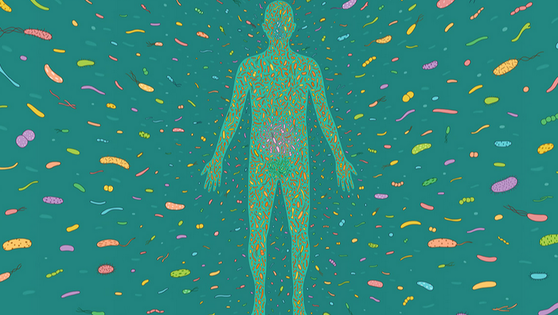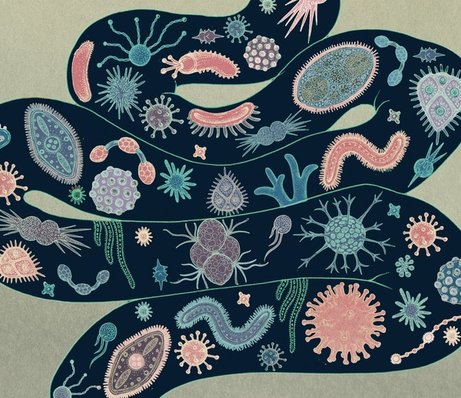|
by Joshua Pirl '19 The immune system is typically thought of as a military-style force, defending our body in a never-ending battle. Its opponent? Sneaky microbes that evolve nasty ways of evading detection and setting up shop within us. So, when it was discovered that between the cells lining our guts and the trillions of microbial cells that inhabit them lies a largely uninhabited layer of mucus, war emerged as the dominant scientific metaphor. It was deemed the ‘neutral zone’, the ‘front line of battle’, or the ‘demilitarized zone.’ Bacterial toxins, antibodies, and anti-microbial peptides suddenly became ‘short-range missiles’ shot at the other side to keep them at bay, and cells that ventured out into the mucosa were ‘gathering intel’ on the enemy, cold war-style.  However, when microbiologists and immunologists thought about this, it didn’t seem to make much sense. When multicellular organisms first evolved, we were the new kids on the block. It was a world run by microbes, and we played by their rules. Given this, it was logical for us to develop ways of working with them to survive, instead of creating weaponry to clear them out. It made sense to listen to bacteria so they could tell us what food was in the area, and to use their microbial byproducts as sources of energy to help us survive. Instead of evolving ways to kill microbes, we evolved ways to manage the presence of the right ones. Ed Yong, science writer and author of the best-selling book, I Contain Multitudes, likes to compare the microbiome to a nature reserve, with the immune system as the park ranger. We tend to the species that live within the fence of our reserve, and if anything tries to breach the fence, we use force to control it. We establish a nice home where different microbial species can live together, filling different niches. If an invasive species enters, we remove it, if a predator becomes too dominant, we cull its numbers, and if someone tries to leap the fence, we stop them. There is very simple evidence for this view; animals raised in labs develop strikingly similar microbiome compositions to their relatives in the wild, despite growing up in radically different environments. Interactions between us and the microbes that live within us are therefore specifically evolved and are fundamentally important to our existence.
Citations:
0 Comments
Leave a Reply. |

